0 Comments
What do you get when three bishops sit down for a chat? It sounds like the start to a terrible joke, doesn’t it? But the delegates of One Rock 2.0 got exactly that: Three bishops: Bishop McGrattan of the Diocese of Calgary, Archbishop Richard Smith of the Edmonton Archdiocese, and Archbishop Gerard Pettipas of the Archdiocese of Grouard-Maclennan sitting poised on couches, as if in our very own living rooms, not only to be heard but to hear us in a panel discussion. “I think our bishops were surprised by what they heard,” said Fr. Cristino Bouvette who acted as moderator for the panel. But it was with compassion and sincerity that the three responded to some fairly tough questions. We are a crowd of over 600 young adults. I recognize men and women who are just beginning university and young professionals deep into careers. I say hello to married friends who, like myself, have started to raise children. I get the sense that this is a crowd of people who are deeply invested in the Catholic faith; many of them “retreat veterans” as attendee Joey Lafleur aptly put it; people who’ve fully accepted the role of sheep following the Good Shepherd; people who are looking for real answers from those called to lead us amidst doubt, horror and confusion at what is happening to our beloved Church; people who are reaching deep into the roots of the Church and to the core of our beliefs and traditions looking for food. In conversations with some of these people, I got the sense that this panel of Bishops, those given the task of shepherds, was going to be one of the most important moments of the One Rock 2.0 experience. The bishops spoke on a myriad of topics, but most of the discussion centered around the scandal of abuse within the Church; on the desire in some young people for more tradition and reverence in the Mass and the Church as a whole; and on our call to live as witnesses to Christ in an ever-changing and sometimes confused society. On Systemic Abuse and Scandal in the Church The recent report from the grand jury in Pennsylvania has rippled like a shockwave into the minds and hearts of Catholics everywhere. Even I, a self-professed news junkie, find myself turning off and shutting out these stories because it makes me seethe inside that the Church I am raising my children to love has this ugliness within it. We want to be able to trust our bishops and priests and know that they are acting, not just giving speeches and hoping we’ll get over it. The panel discussion gave me a sliver of hope as I heard humble words calling me and everyone else to continue in faith. “The world wants us to respond in an authentic and credible way,” said Bishop McGrattan, “but it will take all of the Church – not just the bishops, not just the priests, but all of the Church to remain faithful and allow ourselves to become purified.” He continued to say that the work of the bishops now is to “allow the silence that was there in the Church to be broken, so that those who’ve experienced abuse can speak and that the healing can continue.” As I meandered through the crowd trying to get a sense of other’s feelings on the answers from the bishops, I asked Robyn Pashula, attending from Calgary, what she thought. “They answered very honestly, and you could’ve heard a pin drop as they were speaking vulnerably about the effects of scandals.” It was in this sentiment that Archbishop Smith responded to a question about the abuse allegations saying “there’s a particular horror when [abuse] takes place inside of the Church, and we need to acknowledge that. We need to study that deeply.” He said he thought that the loss of understanding of human sexuality and how it is to be lived according to God’s design is a contributing factor, together with abuse of power and conscience in the abuse that has taken place not only in the Church but in society as a whole. “Because this issue is of such gravity, we need to be striving to understand it fully,” he said. Drawing from past experience, Archbishop Pettipas also had something to add, “A number of years ago – this has come up very recently but we’ve been facing this for a long time in Canada – I spent first years of ministry in St. John’s, Newfoundland. Some of you might have heard of the Mount Cashel orphanage, or of the priests in that archdiocese who were found guilty of numerous counts of despicable behaviour towards young children. “In those days people would say to me ‘Father, how can this be stopped?’ And one of my answers – and it may sound a bit facetious – but I would say, ‘When we stop ordaining human beings, then this will stop.’ “It’s because we are sinful human beings, called to holiness, but still sinful. This is where it comes from.” He pointed out that never before have we understood the impact of sexual abuse like we do today. Referring to the #MeToo movement – thousands of people who are speaking out about sexual harassment and abuse, many of whom have been living in silence until 2018 – he said that we are now being challenged to make some real and lasting changes, not only in our Church, but in our culture as a whole. The bishop and archbishops gave every indication that their work to be good leaders and stop horrific abuses within the Church will be ongoing and that the dialogue will be continuous. On Traditional Practices in the Church There is and always has been diversity within the Church when it comes to style of worship and preference of liturgical practice. During the Mass celebrated by Bishop McGrattan that day, I could see living examples across a spectrum with both chapel veils and raised hands during song, and while those things are small indicators of the different types present, the questions for the Bishops came primarily from young people who could be described as having more traditional leanings. In making their deep desire for more Latin Mass and solemn liturgies known, I got the impression that many of these young men and women have often felt cast aside or out of place for their love of traditional worship within our faith, while still others who may prefer more contemporary forms of worship look on with puzzlement about the desire for the “smells and bells.” “Don’t be feeling like a dweeb!” Archbishop Smith assured them, going on to say that in the Mass, “you’re rooted in tradition, you’re rooted in truth and you discover the truth of who we are, the beloved children of God, and the more that our liturgy can express that ritually, the more attractive it becomes.” He said that he has seen a “very pervasive existential angst that is gripping the lives, the minds, the hearts of people today.” He said he’s been hearing from young people who are looking to find their identity, which is a confusing thing with the messages we’re getting from all around us today. This is why, he said, the Church is a place of refuge. “We’re not called to create [our identity], it’s a given. We’re children of God,” he said firmly. This could be why for some; the liturgical practices that were the norm in our grandparents’ and great-grandparents’ era have sparked something in the hearts and minds of some of our generation. When our identity as individuals is forever in question, the Church gives us the sacraments, the Mass, and the rich traditions of the ages. The tangible signs of God’s grace upon us in the context of beautiful music, and reverent ritual are not to be found anywhere else. The discussion on liturgical practice and preference is ongoing in the Church, but as I talked to a small circle of young men and women who could be described as having more traditional leanings, there was a sense of hope in mulling over the words of our Bishops, who heard their genuine longings with open ears. On Living Out Our Faith Authentically In his opening remarks, Archbishop Pettipas quoted St. Peter saying, “Always be ready to tell others the cause of your joy,” when he spoke to us about the kind of evangelization we should enact. Throughout their time with us, we heard again and again that we are not to be passive, but active and authentic in times that are good, and even in times where confusion and hopelessness seem to reign. “What I’m taking away from today is that I am church, and that whatever I do will contribute to it,” said Robyn Pashula. It is that question, “what can I do?” that we all ask ourselves in the everyday, and in the difficult times. The first to ask a question to the panel, one young man recounted briefly that his good friend had taken his own life, and that he struggled to make sense of it. “How do I move on from this?” he asked, also wondering simply, if his friend had gone to heaven. “The Church has come to be more understanding and compassionate,” Bishop McGrattan answered, “That maybe the freedom that God gives us, and that maybe the full capacity of knowledge to know what to do and how to act -- that sometimes that is diminished in situations where people choose to take their life.” I caught up with Spencer, the young man, so concerned for his friend’s soul and loved ones. Spencer is the only Catholic in his family (though his parents are supportive, he said) and so the loss of his friend, who had been an altar server and faithful Catholic himself was a huge blow. I asked him if he was satisfied with Bishop McGrattan’s answer. “Yes,” he told me, then showed me the funeral card of his friend. I took a pause. Spencer and I agreed that Bishop McGrattan’s encouragement to persevere through these troubled times in faith was uplifting. The bishop had encouraged us all that we can lift up the souls of the faithful departed and continue to believe in the mercy of God. Adding that through persevering in acts of faith, we can be witnesses to Christ’s mercy in these difficult circumstances. Fathers in Faith When introducing the Bishops to us, Father Cristino referred to a beautiful part of the Mass when a concelebrating priest asks the bishops’ blessing prior to reading the gospel; it is in asking this blessing that priest addresses the Bishops as “Father”. In that spirit, he went on to say that he hoped we could think of our bishop and archbishops as father figures too. As they answered with honesty the questions of the day, and indeed as they continue the task of shepherding Alberta’s Catholic Church, they admit to being human beings who depend on God’s grace to serve us. In their concluding messages, each man, pledging to continue in service to us, the Church, asked for our prayers, and prayed for us. “I pray that the acts of faith that come upon you each day might be strengthened through this gathering,” said Bishop McGrattan in his homily at Mass, “so that your lives might become a full and authentic witness of Christ.” Bishop McGrattan held a Press Conference on Wednesday, Oct. 10 to share what we are doing to protect and prevent sexual abuse in the Church. This follows the release of CCCB Document: "Protecting Minors from Sexual Abuse: A Call to the Catholic Faithful in Canada for Healing, Reconciliation, and Transformation."
Here is the list of media coverage for the conference:
Over the past month the world has been witness to immense sufferings as a consequence of natural disasters:
|
Author
Catholic Pastoral Centre Staff and Guest Writers Archives
July 2024
Categories
All
|
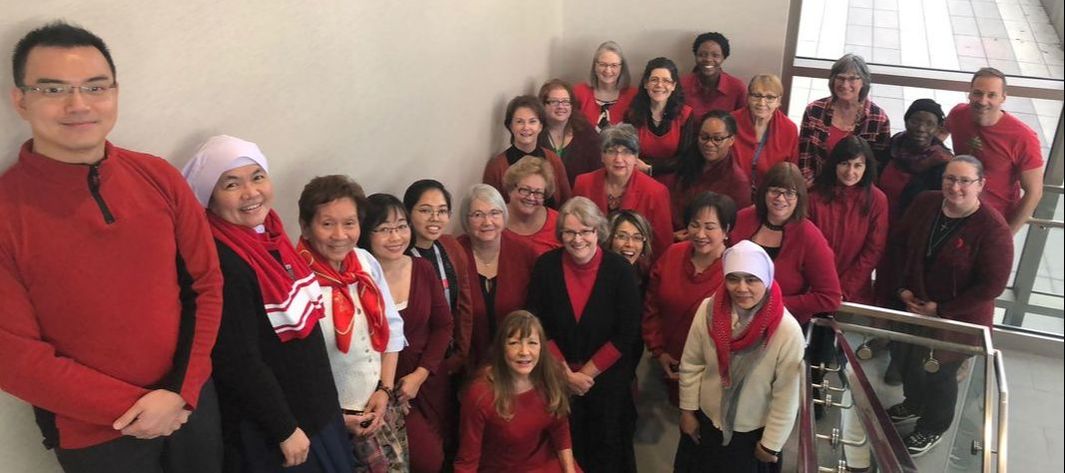
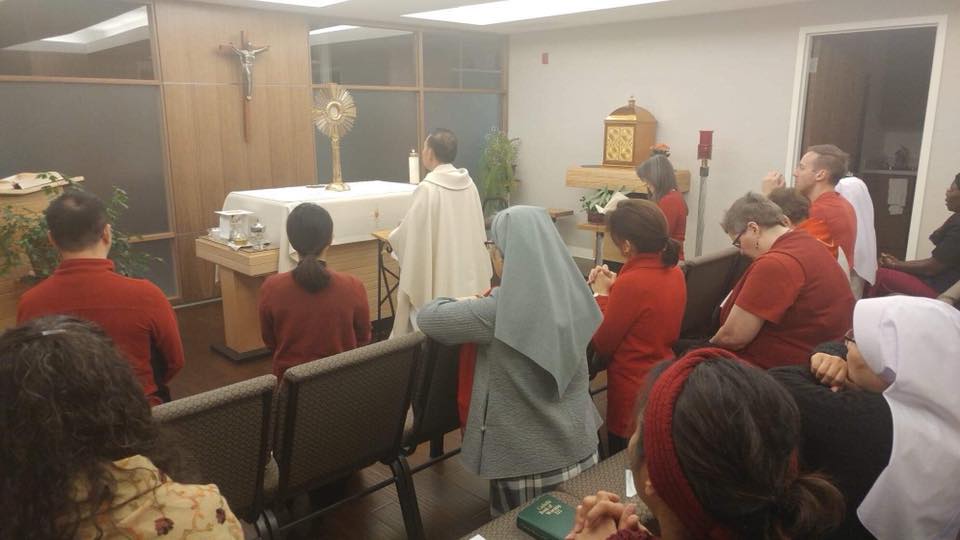
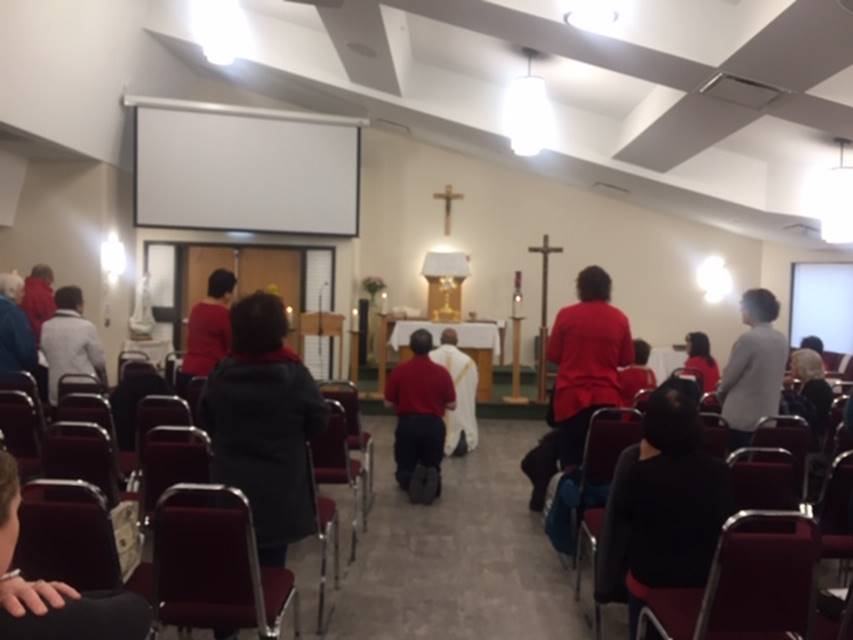
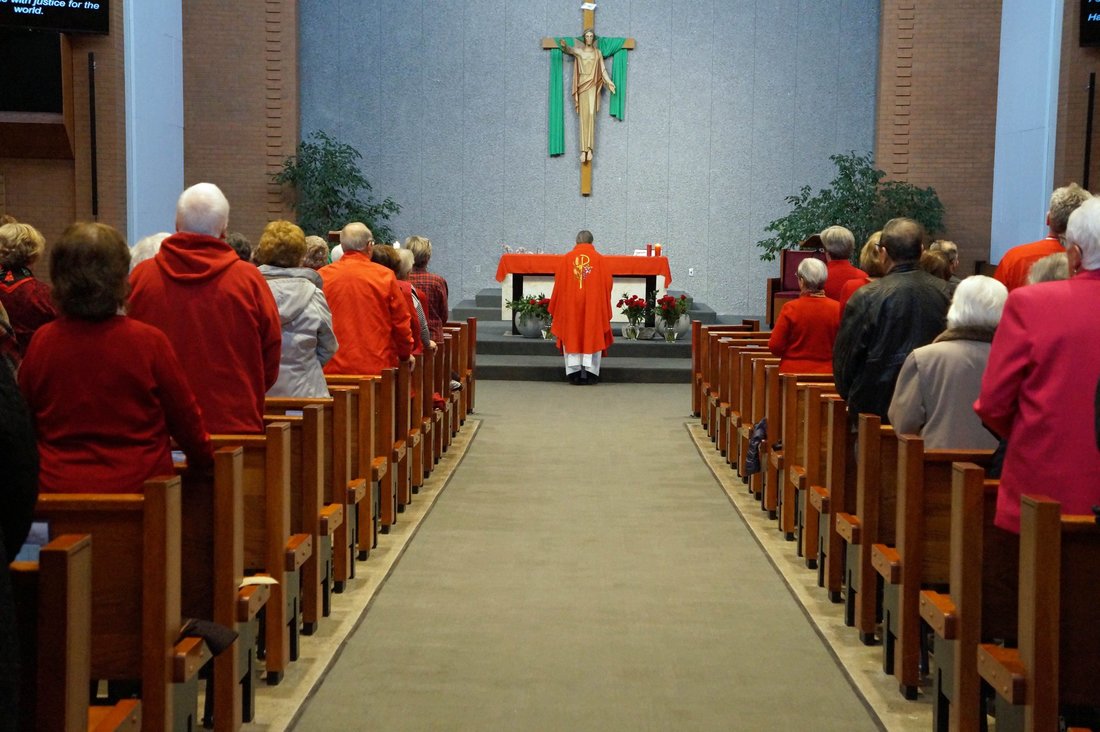
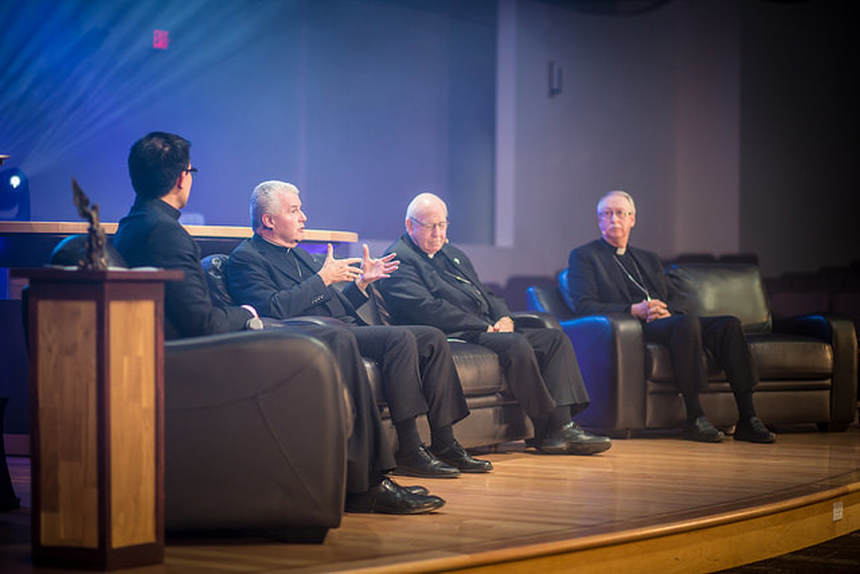
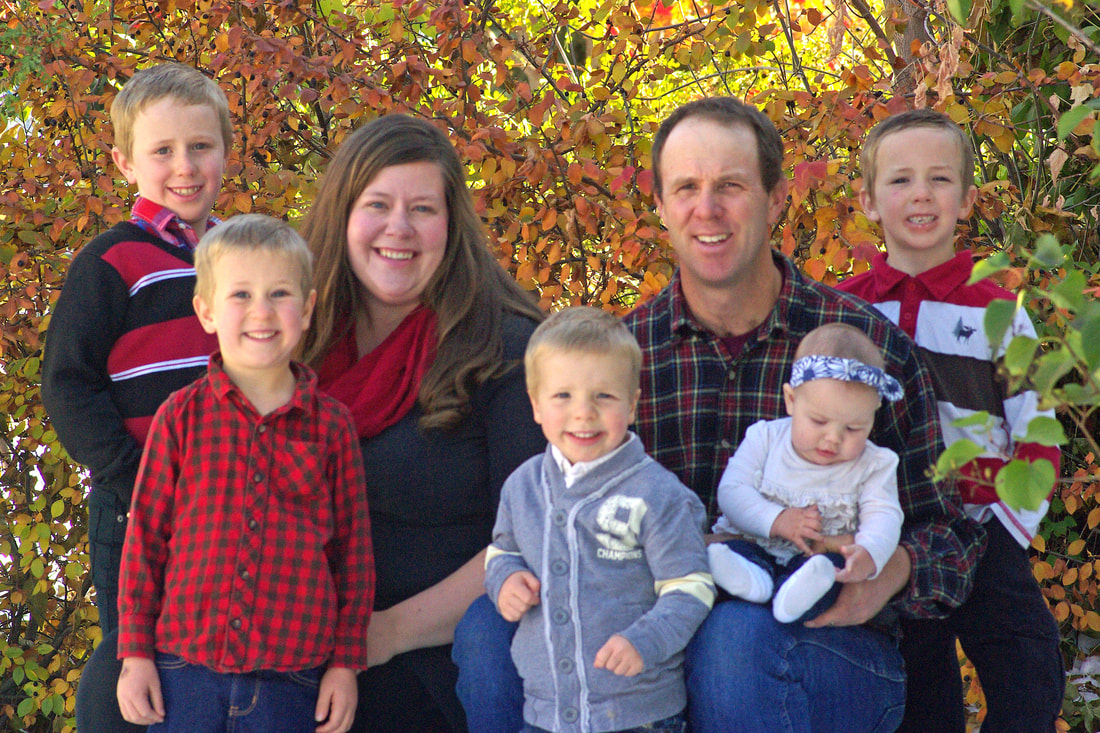


 RSS Feed
RSS Feed